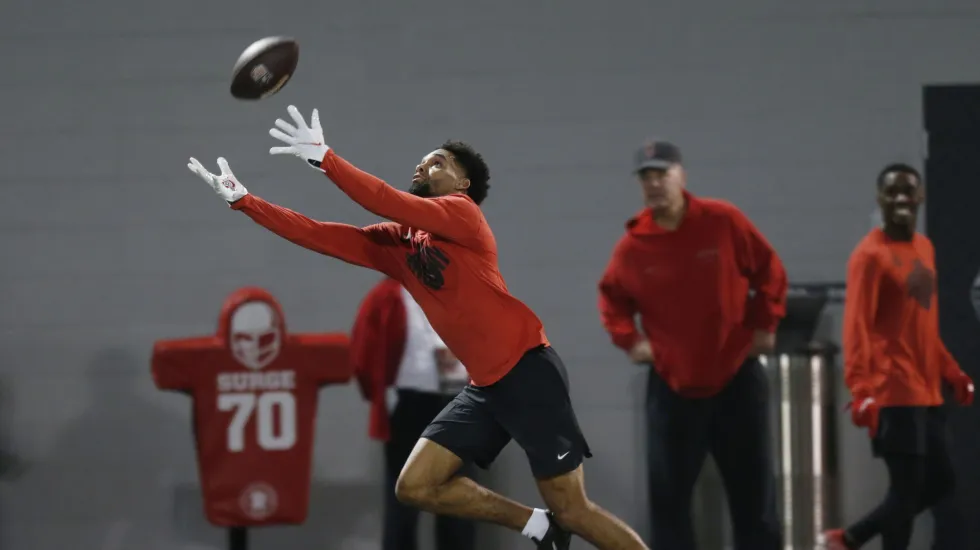
The Bears need a starting receiver — or two. Problem is, it’s never been more expensive to acquire one.
The three priciest receiver contracts in history were signed this year — and immediately followed trades. The Raiders dealt for the Packers’ Davante Adams and signed him to a five-year, $141.25 million deal. Tyreek Hill went from the Chiefs to the Dolphins and got a four-year, $120 million contract, the highest per-year total in NFL history. The Cowboys dealt Amari Cooper to the Browns, who gave him $100 million over five years.
Earlier this month, the Bills rewarded Stefon Diggs with a four-year, $96 million contract extension. More receivers will join him — the Titans’ A.J. Brown, the Commanders’ Terry McLaurin and the 49ers’ Deebo Samuel all want new deals and are avoiding their teams during voluntary workouts. Samuel has requested a trade. D.K. Metcalf has one year left on his Seahawks contract, and could be traded if the two sides disagree on its value.
Even mid-range starters got paid this offseason. Christian Kirk — who has never posted 1,000 receiving yards in a season — signed a baffling four-year, $72 million deal with the Jaguars. His $37 million in guarantees ranked second among offensive free agents; former Bears receiver Allen Robinson’s $30.8 million — from the Rams — was third.
The Bears don’t figure to hunt pricy receivers who ask for trades. Instead, they’ll likely pick a receiver in the second or third round of the NFL draft on Friday.
Those contract prices, though, will move receivers up draft boards. The reason: teams that hit on receivers will have tremendous cost savings over the next four or five seasons. The Vikings, for example, picked receiver Justin Jefferson No. 22 overall two years ago. He’ll have a $3.6 million cap hit this season — despite being better than many of the pass-catchers mentioned above.
“You get cost control on a player like that at that price for four years plus a fifth-year option versus having to go the veteran route and having to pay that huge, huge number to get a premium guy,” NFL Network draft analyst Daniel Jeremiah said. “[And] if not pay him, then you’ve got to trade a bunch of assets to go get him.
“To me, I think that’s why this year we see wideouts get pushed up a little bit more, maybe, than in years past. I think we’ll see six of them go in the first round.”
The Bears will be waiting in Round 2 or 3. Or both.
Fields’ future might depend on it.
“There’s a lot of guys coming out this year’s draft and a lot of guys that are talented,” quarterback Justin Fields said. “So I’m excited to see who we get, excited to see who my guys from Ohio State go to.”
Those two Buckeyes, Garrett Wilson and Chris Olave, figure to be long gone by the time the Bears draft No. 39 and No. 48 overall. Second-day options include Western Michigan’s Skyy Moore, Georgia’s George Pickens, North Dakota State’s Christian Watson and Alabama’s John Metchie III, among others.
Darnell Mooney, the Bears’ best receiver, wants to see the team draft another one.
“I would love to get one of those guys to come here and give us a spark, and just create,” Mooney said. “And just be extremely more dangerous.”
New general manager Ryan Poles said the Bears front office studied quarterbacks who made leaps from Year 1 to 2 and found that many had a receiver that they trusted when times got tough. The Bears, though, have only two receivers who caught more than 10 passes last year — Mooney and free agent acquisition Byron Pringle.
The Bears need help at receiver. The problem is, so do most other teams.
“Everybody is kind of wide receiver-obsessed this off-season,” Jeremiah said.







